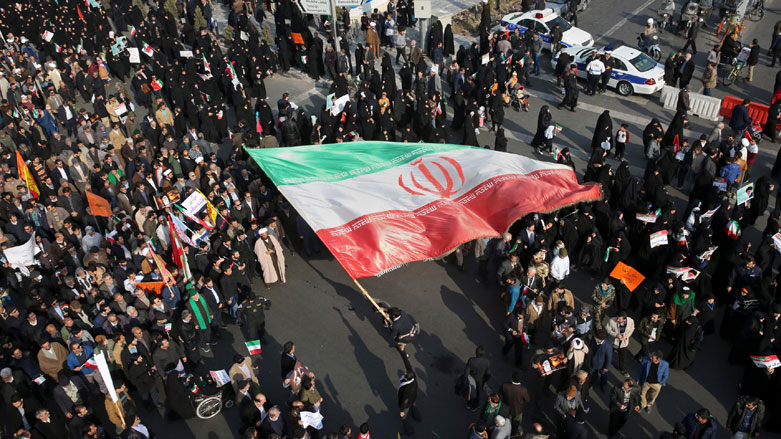US to announce new Iran strategy

WASHINGTON DC (Kurdistan 24) - On Monday, Secretary of State Mike Pompeo will outline the Trump administration’s new strategy for dealing with Iran following the US withdrawal on May 8 from the Iranian nuclear agreement, known as the Joint Comprehensive Plan of Action (JCPOA.)
State Department Spokesperson Heather Nauert explained on Thursday that the US “will be working hard to put together a coalition” similar to “the D-ISIS [Defeat-ISIS] coalition, where we bring together a lot of countries,” with the aim of taking a comprehensive approach to Iran’s malign behavior—dealing not only with the nuclear issue, but with “all” of Iran’s “destabilizing activities.”
She characterized those activities as threatening not only the region, but “the broader world.”
Last week, the State Department hosted some 200 ambassadors in Washington to discuss how to proceed on the issue, Nauert revealed.
The State Department’s Director of Policy Planning, Brian Hook, explained to journalists on Friday that Pompeo would be “presenting a diplomatic roadmap to achieve a new security architecture” and new “security framework” that is better than the JCPOA.
The other signatories to the agreement, besides Iran—Germany, France, Britain, Russia, China, and the European Union—have all expressed their opposition to the US decision and have said they will seek to preserve the JCPOA, perhaps in a tougher form, to accommodate the US objections.
But whether common ground can be found between Washington and all the other parties remains uncertain.
German Chancellor Angela Merkel met with Russian President Vladimir Putin on Friday in his residence at the Black Sea resort of Sochi to discuss a number of issues, including the future of the JCPOA. However, it is unclear what understanding, if any, the two leaders reached on the issue.
Despite European opposition to the US decision, Washington has given commercial companies until Nov 4 to end their activities in Iran, after which they will be liable to US sanctions.
French oil giant Total has already announced that it is pulling out of a $2 billion project to exploit Iran’s South Pars gas field.
Pompeo’s speech on Monday will be his first major foreign policy address, underscoring the importance that he attaches to countering Tehran’s aggression.
Pompeo has taken a tougher position on Iran than his predecessor, Rex Tillerson, whom Trump unceremoniously dismissed in March.
Last October, while he was still CIA Director, Pompeo spoke at the University of Texas, where he denounced Iran as "a thuggish police state" and a "despotic theocracy,” likening it to the Islamic State.
“When you look at the death and destruction inflicted in Syria, Yemen, and Iraq by Tehran and its proxies, the threat is clear: Iran is mounting a ruthless drive to be the hegemonic power in the region,” he said.
Unlike Pompeo, most US officials have not been willing to say that Iranian influence in Iraq represents a serious challenge (John Bolton, the new National Security Adviser and also a hard-liner on Iran, does not seem to share that inhibition either.)
In contrast to the Europeans, Saudi Arabia and Israel strongly support Trump’s decision to withdraw from the nuclear agreement.
In his press briefing, Hook backed Israel’s claim that Iran still plans to obtain nuclear weapons, despite the JCPOA.
Iran’s nuclear program “has had a definite military dimension,” Hook said, “and the Iranians have yet to come clean on the military dimensions of their nuclear activities.”
Two days after Pompeo visited Israel in late April, Prime Minister Benjamin Netanyahu gave a dramatic address on Iran’s nuclear program, based on a massive cache of documents that Israeli intelligence had succeeded in smuggling out of the country.
Citing Netanyahu’s presentation, Hook affirmed, “Iran has been protecting and preserving a vast atomic archive while it has been implementing the JCPOA.”
Editing by Nadia Riva
